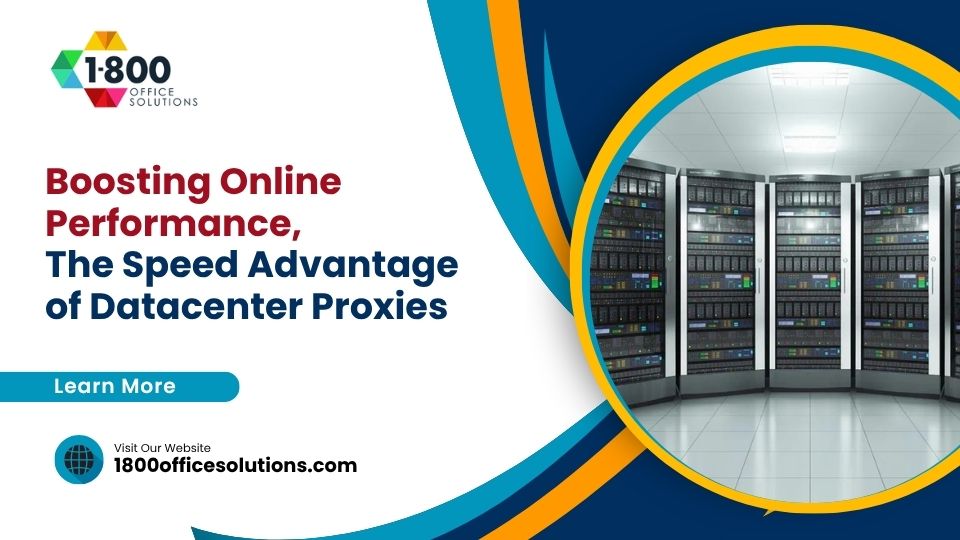Data Management Explained: Importance for Modern Enterprises
AI Overview:
This guide explains how effective data management boosts business efficiency and decision-making. It covers the core principles of organizing, securing, and analyzing data, from governance and compliance to backup and disposal. Readers learn about key tools like cloud systems, AI automation, and scalable databases that improve accuracy and security.
It also highlights future trends—big data, machine learning, and data ethics—and offers steps for building a tailored management strategy with defined roles, training, and regular performance checks. In short, it’s a concise roadmap for turning data into a reliable asset that drives smarter operations and growth.

Comprehensive Guide to Data Management and Its Importance
Are inefficient systems and data chaos slowing down business growth? This post covers core data management techniques, the value of a well-organized system, and reliable tools for managing business data. Readers will learn how proper data management addresses inefficiencies and fosters smoother operations. With clear insights and actionable strategies, this guide offers practical solutions for optimizing data management.
Understand the Core Principles of Data Management Techniques

Data management techniques involve defining core components and recognizing diverse storage systems, along with best practices for organization and indexing. This section examines data governance data compliance, roles of a data steward, observed behavior, and stream processing, emphasizing measures to ensure data quality and integrity amid the emergence of advanced methods.
Define Data Management and Its Key Components
The concept of data management involves coordinating and controlling data collection, organizing a workflow that ensures smooth operations, and creating a reliable infrastructure for storing and processing information. Leveraging a clear understanding of each component, organizations can effectively integrate a dashboard to monitor progress and maintain the precision and integrity of their records.
Data management encompasses various elements that work together to support a business’s daily operations and strategic goals. By establishing an efficient infrastructure, streamlining the workflow, and ensuring accurate data collection, professionals can rely on robust systems such as an interactive dashboard to make informed decisions and optimize overall performance.
Recognize the Various Types of Data Storage Systems
The professional team examines various data storage systems with the precision expected from a seasoned scientist, taking inspiration from industry leaders like IBM to ensure efficient quality assurance and robust security measures. This approach guarantees that organizations receive a comprehensive view of storage options, aligning infrastructure with both contemporary needs and future challenges.
Experts stress the importance of selecting storage systems that offer reliable security and quality assurance to support critical business functions. Drawing on extensive experience and practical examples, professionals consistently recommend systems modeled after IBM’s frameworks to meet diverse data management objectives.
Identify Best Practices for Data Organization and Indexing
The expert highlights the importance of a solid management system that streamlines data organization and indexing, ensuring every piece of unstructured data is accessible when needed. The professional team advises incorporating consistent replication and regular backup procedures to maintain data integrity in a technology-driven environment.
Practitioners recommend utilizing advanced systems designed for orderly data flow and accurate indexing to meet modern business needs. This approach includes setting up a robust management system that integrates efficient backup and replication measures, thus safeguarding unstructured data and supporting seamless technology operations.
Explore Data Governance and Compliance Requirements
Organizations integrate robust data management solutions to address governance and compliance requirements while ensuring control over raw data and monitoring sales trends. Their strategies include adopting secure password protocols and making strategic investment decisions that protect sensitive information and support regulatory standards.
Industry experts advocate refining data management practices to streamline compliance processes and reinforce operational integrity. They emphasize practical actions such as evaluating data management solutions and maintaining vigilant oversight over raw data, password security, and sales metrics to drive sustained organizational performance.
Assess Data Quality and Integrity Measures
The organization monitors data quality through rigorous governance and proactive monitoring techniques that ensure a reliable cloud database environment, meeting stringent regulatory compliance standards. The team utilizes multicloud strategies along with assessment methods under the california consumer privacy act to maintain high data integrity across systems.
Experts implement practical measures to track data accuracy and prevent errors, addressing common concerns faced by business leaders. The approach integrates regular audits and real-time validation processes, reinforcing reliable regulatory compliance and demonstrating first-hand expertise in cloud database management.
Investigate the Importance of Effective Data Management

Effective data management drives decision-making with accurate data sets, improves operational efficiency through clear semantics, and mitigates risks from poor data handling. The document reviews case studies emphasizing API integration and credit monitoring to enhance customer satisfaction while detailing practical strategies that influence every business operation.
Analyze How Data Management Impacts Decision-Making
The organization recognizes that an effective management systems approach transforms decision-making processes by streamlining data flows and integrating masterdatamanagement strategies that ensure customer information remains accurate. Real-world examples illustrate how robust information technology infrastructures support customer relationship management, enabling business leaders to make informed choices swiftly.
Practical implementation of advanced data management practices leads to better assessment of customer trends and improved operational accuracy. This strategy promotes enhanced oversight and more precise analytics, ensuring that decisions are based on reliable data from management systems and masterdatamanagement frameworks.
Examine the Role of Data in Enhancing Operational Efficiency
The organization recognizes that effective data profiling and data processing through a well-tuned engine can significantly streamline daily operations, resulting in measurable productivity improvements. Drawing on insights from the university of north texas and practical experiences with salesforce integrations, experts have demonstrated how accurate data processing enhances operational workflows and supports informed decision-making.
By focusing on actionable data profiling, professionals can optimize system performance and ensure critical information flows seamlessly throughout the enterprise. Evidence from established practices at the university of north texas and salesforce implementations confirms that robust data processing enhances operational efficiency and offers clear value to business operations.
Discuss Risk Management Associated With Poor Data Handling
The organization recognizes that poor data handling increases complexity in computer systems, which may undermine data security and weaken the overall policy framework. Leveraging detailed statistics and direct expertise, the team demonstrates how inadequate management practices can lead to costly errors and hinder risk management efforts.
Experts advise that a structured approach is necessary to address vulnerabilities, ensuring that data security is maintained by following rigorous policy standards. Real-world examples show that integrating proper risk management techniques reduces complexity and improves overall computer system reliability, helping decision-makers avoid pitfalls associated with flawed data handling.
Evaluate Data Management’s Influence on Customer Satisfaction
Effective data management significantly boosts customer satisfaction by ensuring that a reliable database and optimized cloud computing infrastructure are in place, which streamline service delivery and reduce wait times. Practical implementations reveal that integrating robust data mining techniques with software development processes improves product quality while offering detailed insights shown in a clear table format, which helps avoid customer confusion.
High-quality data management practices enable organizations to maintain accurate customer records and provide timely responses to inquiries. First-hand expertise demonstrates that leveraging a well-maintained database alongside cloud computing helps create seamless software development cycles, ultimately leading to measurable improvements in overall customer experiences without compromising performance.
Review Successful Case Studies of Effective Data Strategies
Industry case studies demonstrate how an optimized data management approach has transformed the operational landscape for organizations by integrating automation and robust metadata management practices. Real-world examples highlight the successful deployment of advanced algorithms that analyze sensor-generated data, resulting in improved decision-making and increased productivity.
Documented case studies reveal that deploying effective data strategies can resolve common operational challenges by ensuring that metadata management and algorithmic data processing are seamlessly integrated. Experts have observed that embracing automation and leveraging sensor insights delivers substantial benefits, making critical data accessible for rapid and informed decision-making.
Discover Data Management Tools and Technologies

This section offers a concise overview of key topics: comparing top data management software solutions, understanding cloud-based versus on-premises data systems, analyzing automation and AI in processes, identifying essential security features, and reviewing scalability options in tools. This knowledge reinforces an integral data management plan, optimizing user experience and effective management in modern business operations.
Compare Top Data Management Software Solutions
The organization evaluates top data management software solutions that integrate seamlessly with platforms like amazon web services, offering reliable information processing and robust data analysis tools. This approach enables companies to manage customer data effectively while incorporating artificial intelligence for enhanced operational performance.
Industry experts note that modern software solutions provide actionable insights through precise information tracking and innovative data analysis tools. Their extensive experience shows that using these advanced systems helps streamline processes and safeguard customer data while using artificial intelligence to drive improvements across business operations.
Understand Cloud-Based Versus on-Premises Data Systems
The organization compares cloud-based and on-premises data systems to facilitate agile software development and promote efficient data management. It uses practical examples from computer science to demonstrate how each system affects usability and supports rigorous data governance practices.
Experts reason that cloud solutions offer scalability and flexibility, while on-premises systems provide more control for tailored data management. They observe that organizations must evaluate their specific operational needs and technical capabilities to determine the ideal balance between expanding agile software development initiatives and maintaining secure data governance.
Analyze Automation and AI in Data Management Processes
The integration of automation and artificial intelligence in data management processes has improved efficiency and refined system design, allowing organizations to handle master data effectively. The approach has enabled real-world improvements by reducing manual input, which in turn streamlines pricing models and supports scalability for complex data environments.
Experts note that utilizing AI-driven automation can resolve common data processing challenges while ensuring that master data remains accurate and accessible. Practical examples reveal that incorporating these innovative tools drives efficient system updates, balances pricing structures, and enhances the overall scalability of data management frameworks.
Identify Security Features Essential for Data Protection
The organization prioritizes robust security measures built into each data management tool to protect sensitive information. It employs stringent encryption protocols and real-time monitoring integrated with data science insights to ensure secure data lakes and streamline analysis.
The team emphasizes incorporating advanced password controls and multi-factor authentication as part of its knowledge management practices. These features are designed to secure every facet of the system while supporting a dynamic analysis environment for critical business operations.
Review Scalability Options in Data Management Tools
The organization reviews scalability options in data management tools by closely examining how a data management system adapts to growing volumes and varied workloads. Real-world examples indicate that scalable systems, such as those built on nosql architectures, support improved accessibility for users in sectors like insurance and support compliance with strict regulation standards. Practical insights into these tools show that businesses gain a robust foundation to manage expanding data complexities.
Practical experience underscores the importance of selecting data management tools that scale seamlessly with a company’s evolving needs. The organization finds that scalable solutions not only improve operational accessibility but also ensure that data processes remain efficient and secure under regulatory requirements. Expertise in deploying scalable systems highlights how nosql frameworks and flexible data management systems drive long-term value for businesses in regulated industries, such as insurance.
Learn Best Practices for Data Lifecycle Management

This section outlines the stages of the data lifecycle, from creation to disposal, and covers strategies for data archiving, retention, and migration challenges. It reviews user-focused backup and recovery processes and advises on data disposal methods that meet law standards. The content also addresses cloud storage, accounting requirements, and efficient batch processing methods.
Outline the Stages of the Data Lifecycle From Creation to Disposal
The data lifecycle begins with creation, where raw information is collected and organized for immediate use and future analysis. Experts note that understanding this phase aids in establishing strong data access practices and ensuring compliance with privacy law, essential for robust devops environments and marketing analytics.
After data is stored and maintained, it transitions through active use and processing before entering retirement stages, which involve archiving and secure disposal. Industry professionals emphasize that clear processes during this transition leverage edge computing technologies to optimize performance and support regulatory standards in privacy law.
Develop Strategies for Data Archiving and Retention
Organizations develop strategies for data archiving and retention by using efficient server systems and relational database technologies to streamline storage and retrieval processes. They integrate learning techniques from practical experiences in internet advertising to set clear retention periods and optimize backup procedures, ensuring that vital information remains secure and accessible.
Industry professionals stress the significance of implementing systematic archiving methods that leverage advanced server architecture and relational database management for sustained performance over time. This approach supports effective learning from past data trends while meeting compliance requirements in the digital advertising landscape, thereby safeguarding operational integrity.
Address Data Migration Challenges and Strategies
The organization recognizes that data migration challenges require a robust computer program that effectively addresses the core concept of data preparation. By implementing strategic methodologies, the team minimizes risk and streamlines processes to support digital transformation initiatives.
Practitioners focus on actionable strategies that resolve common data migration issues while ensuring data integrity during transfer. The approach combines detailed data preparation with refined computer program techniques to safeguard against risk and promote successful digital transformation.
Prioritize Data Backup and Recovery Processes
The organization prioritizes a rigorous approach to data backup and recovery by integrating modern data management technologies that support enterprise data management and real-world intelligence. The team utilizes practical data mesh frameworks and data cleansing practices to ensure that critical systems recover swiftly and accurately during incidents while meeting business continuity needs.
Experts employ actionable insights from extensive experience to solidify backup processes that align with emerging trends in data management technologies. The organization focuses on robust systems that enhance enterprise data management and strengthen overall intelligence, ensuring that data remains secure and recoverable under any circumstance.
Implement Data Disposal Methods That Ensure Compliance
The organization employs effective data disposal methods that ensure compliance by integrating quality management practices and maintaining clear data lineage from creation to deletion. These techniques, which include robust controls within a data warehouse environment, help certified professionals verify that each step meets regulatory standards and safeguards sensitive information when processed by machine systems.
Experts advocate for establishing policies that incorporate professional certification and detailed tracking within data warehouses to support secure data disposal. By using machine-assisted methods and upholding quality management standards, organizations can confidently eliminate obsolete data while ensuring that the disposal process complies with industry rules and preserves data lineage integrity.
Evaluate the Future Trends in Data Management

The section examines how big data transforms master data management, the global rise in data privacy regulations, and advancements in analytics and visualization. It reviews the role of machine learning and data ethics in shaping future practices in cloud environments, the internet of things, and manufacturing data models.
Analyze the Impact of Big Data on Data Management Practices
The surge in big data has reshaped practices within data warehouses, driving a transformation in data management tools that benefit the entire ecosystem. Detailed insights and real-world examples demonstrate how accurate data prediction improves customer experience by aligning data operations with emerging business needs.
Industry experts emphasize that the integration of big data into management solutions leads to more precise decision-making and streamlined processes. Practical applications in data warehouses support the ecosystem by enhancing prediction accuracy and bolstering customer experience through refined data management tools.
Discuss the Growth of Data Privacy Regulations Globally
The growth of data privacy regulations globally drives businesses to update their system practices while ensuring secure handling of metadata. Experts note that sectors like retail face unique challenges, prompting the adoption of hybrid approaches and efficient programming language tools to manage data transparently.
Global data privacy norms require that organizations integrate rigorous security measures into their system infrastructures. Professionals in the retail field implement hybrid solutions and utilize proven programming language methodologies to handle metadata accurately, providing actionable insights to maintain compliance.
Examine Advancements in Data Analytics and Visualization
The organization applies advanced analytics and visualization tools to provide actionable insights into data quality and ethics, ensuring the brand maintains a high standard of credibility. Using real-world examples, experts have demonstrated how streamlined data processes enhance health monitoring initiatives and offer clear solutions to common business challenges.
Utilizing cutting-edge analytics, the team enhances data visualization techniques that improve data quality and support ethical decision-making. Practical insights show that such advancements offer valuable benefits to organizations seeking robust data solutions, effectively addressing the need to safeguard brand integrity and promote health-related outcomes.
Investigate the Rise of Machine Learning in Data Management
The rise of machine learning in data management has transformed how a database administrator handles big data, enabling improved audit procedures and more efficient data processing. This shift provides businesses with the ability to treat their object storage as a valuable asset, enhancing overall system performance and reliability.
Machine learning applications offer actionable insights that support early identification of anomalies, helping professionals optimize workflows and protect critical data assets. These technologies give organizations the tools needed to conduct thorough audits, ensuring compliance and leveraging big data to drive informed decisions.
Assess the Role of Data Ethics in Future Practices
The organization recognizes that upholding robust data ethics is integral to refining data architecture and strategy, which can improve revenue prospects and protect computer data storage systems. Experience in business analytics shows that ethical practices promote transparency and trust, ultimately supporting effective decision-making.
Industry experts note that maintaining clear ethical standards in data use ensures that evolving strategies remain sustainable, a factor that directly influences revenue and secure computer data storage. First-hand insights indicate that incorporating ethics into business analytics and data architecture leads to improved efficiency and proactive risk management.
Implement Data Management Strategies for Organizations

Organizations should create a data management strategy customized for unique needs, establish a data management team with defined roles, and regularly monitor and optimize performance. Training employees on best practices and setting metrics to evaluate success ensures that data lake operations, inventory management, business intelligence, prep routines, and cloud data systems add tangible value.
Create a Data Management Strategy Customized for Your Needs
The organization develops a tailored data management strategy by analyzing current risk management challenges and integrating robust data integration tools that foster data transformation. Practical insights from industry professionals illustrate that applying innovative techniques alongside advanced analytics significantly boosts overall system performance.
This approach enables companies to align their technical infrastructure with evolving business requirements, thereby ensuring reliable analytics for process improvement. Experts recommend that a customized strategy helps address key pain points while driving innovation in data transformation, leading to measurable benefits in operational efficiency.
Establish a Data Management Team With Defined Roles
The organization establishes a data management team with clearly defined roles to drive data integrity and operational efficiency. Each team member utilizes precise language in their communication to ensure that software systems are effectively integrated, and change data capture techniques are applied across processes for a competitive advantage.
Experts observe that delineating responsibilities within the team optimizes performance and fosters a solution-oriented mindset. Practical examples demonstrate that specialized roles not only support data integrity but also streamline software workflows, enabling organizations to maintain a competitive advantage in dynamic environments.
Monitor and Optimize Data Management Performance Regularly
The organization continuously tracks data management performance by utilizing sql queries and informatica tools to gather actionable insights. In practice, experts monitor key metrics that drive productivity and refine data management strategies, ensuring that system performance aligns with operational goals.
Practical experience shows that regular reviews help pinpoint areas of improvement while reducing bottlenecks. This proactive approach empowers the organization to adjust settings and apply data management strategies that optimize informatica processes, resulting in increased efficiency and sustained productivity.
Train Employees on Best Data Management Practices
The organization invests in regular training sessions where employees gain practical insights into a structured business process and effective management data techniques, enabling them to optimize data analysis across various departments. These sessions address everyday challenges in content management and supply chain dynamics, ensuring that team members apply actionable insights that drive operational success.
Employees receive hands-on instruction in advanced data techniques to streamline the business process and fortify management data practices within the organization. Training emphasizes pragmatic approaches in data analysis and content management that play a crucial role in refining supply chain operations and enhancing overall efficiency.
Set Metrics to Evaluate the Success of Data Initiatives
The organization measures data initiative success by setting clear metrics aligned with data management platform performance, machine learning integrations, and consumer privacy standards. Performance metrics also include tracking dataops efficiency and ensuring compliance with general data protection regulation, which helps guide strategic improvements.
Experts detail that actionable insights from these metrics enable businesses to adjust their systems and refine data management practices. Clear data points from machine learning analytics and consumer privacy audits offer practical examples that support ongoing optimization of data initiatives.
Conclusion
A comprehensive guide to data management informs organizations on how to structure, secure, and utilize their data effectively. It highlights the value of a tailored strategy, robust technology, and regular performance reviews in achieving operational excellence. The guide demonstrates that precise measures in data organization and backup processes drive informed decision-making and operational efficiency. It leaves a lasting message that diligent data management underpins business innovation and sustained performance.











